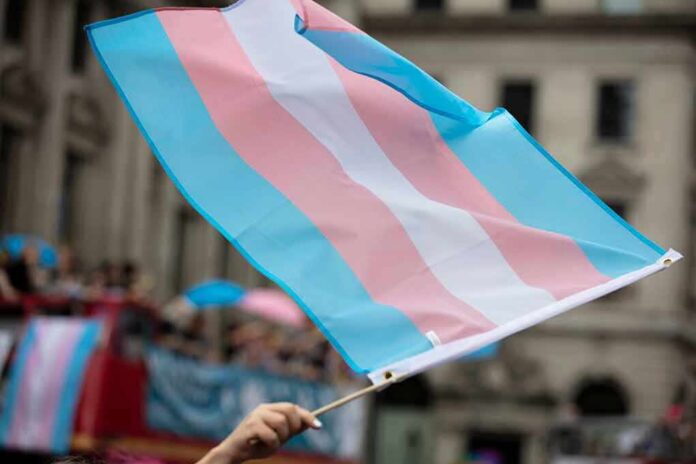Corporate America’s retreat from LGBTQ Pride sponsorships has left nationwide events struggling with massive budget gaps amid intensifying political pressure from the Trump administration.
Key Takeaways
- Nearly 40% of major companies plan to reduce Pride-related engagement in 2025, citing pressure from the Trump administration and conservative backlash
- Pride events nationwide face significant funding shortfalls while simultaneously dealing with increased security costs—Palm Beach Pride spent an extra $15,000 on security
- Some companies continue support but without public acknowledgment, fearing political and consumer backlash
- The Supreme Court case Mahmoud v. Taylor highlights the growing tension between LGBTQ curriculum in schools and parents’ religious freedom rights
Corporate Exodus from Pride Events
Pride events across South Florida and the nation are feeling the financial strain as corporate sponsors pull back their support in response to political pressures. According to a 2025 Pride Pulse Poll, 39% of major companies are planning to reduce their Pride-related engagement this year, with many citing pressure from the Trump administration’s stance on diversity, equity, and inclusion initiatives. This widespread withdrawal has created significant budget gaps for Pride events that have historically relied on corporate funding to operate.
“I don’t believe there’s a single Pride organization in this country that has not seen a drop in financial contributions,” said Rob Legere, executive director of the Palm Beach County Human Rights Council.
Increasing Security Costs Compound Financial Challenges
The financial strain is further compounded by rising security expenses as Pride events face heightened threats. Palm Beach Pride spent an additional $15,000 on security measures this year, while Wilton Manors’ Stonewall event implemented metal detectors, adding $35,000 to security costs. These increased expenses come at the worst possible time, as organizations are already grappling with reduced corporate funding. Some sponsors continue to provide support but request no public acknowledgment, highlighting the politically charged atmosphere surrounding these events.
“It does have an impact with Stonewall,” said Jameer Baptiste, executive director of the Pride Center at Equality Park, which organizes Stonewall Pride in Wilton Manors. “Security costs have gone up substantially.”
Political Climate Driving Corporate Decisions
The shifting corporate approach to Pride events is directly linked to the current political environment. While some companies like Target have returned as sponsors despite previous controversies, others such as American Airlines and Amazon have withdrawn support. The retreat from Pride sponsorships reflects broader concerns about potential consumer backlash and political repercussions. This phenomenon is especially pronounced in states with more conservative leadership, where companies are increasingly wary of being perceived as taking political sides.
“Corporations have been pulling back on sponsorship of Pride rallies in response to the Trump administration’s attacks on diversity,” said Stephen Gaskill, president of the Florida LGBTQ+ Democratic Caucus.
Parents’ Rights vs. LGBTQ Curriculum in Schools
The tension between LGBTQ advocacy and parental concerns extends beyond corporate sponsorships into education. The Supreme Court is currently hearing Mahmoud v. Taylor, a case where Muslim, Orthodox Christian, and Catholic families are challenging a Maryland school district’s refusal to allow them to opt their children out of lessons featuring LGBTQ+ characters based on religious objections. This case highlights the growing conflict between parental rights and schools’ efforts to promote inclusive education.
“There’s no evidence at present that the Board’s decision not to permit opt-outs compels the Parents or their children to change their religious beliefs or conduct, either at school or elsewhere,” ruled the 4th Circuit Court in its decision favoring the school board.
Constitutional Questions at Stake
The Supreme Court’s upcoming decision in Mahmoud v. Taylor could have far-reaching implications for parental rights, religious freedom, and public education. The case revisits the precedent set in the 1925 Pierce v. Society of Sisters ruling, which established that “the child is not the mere creature of the state; those who nurture him and direct his destiny have the right, coupled with the high duty, to recognize and prepare him for additional obligations.” Parents contend they’re being forced “to make a choice, either adher[ing] to their faith, or receiv[ing] a free public education for their children.”
The constitutional questions at stake reflect the broader cultural and political tensions surrounding LGBTQ issues in American society. As corporations retreat from public support of Pride events and parents challenge LGBTQ-inclusive education, the debate over the appropriate balance between promoting inclusivity and respecting religious and parental rights continues to intensify across multiple fronts, from corporate boardrooms to the Supreme Court.











